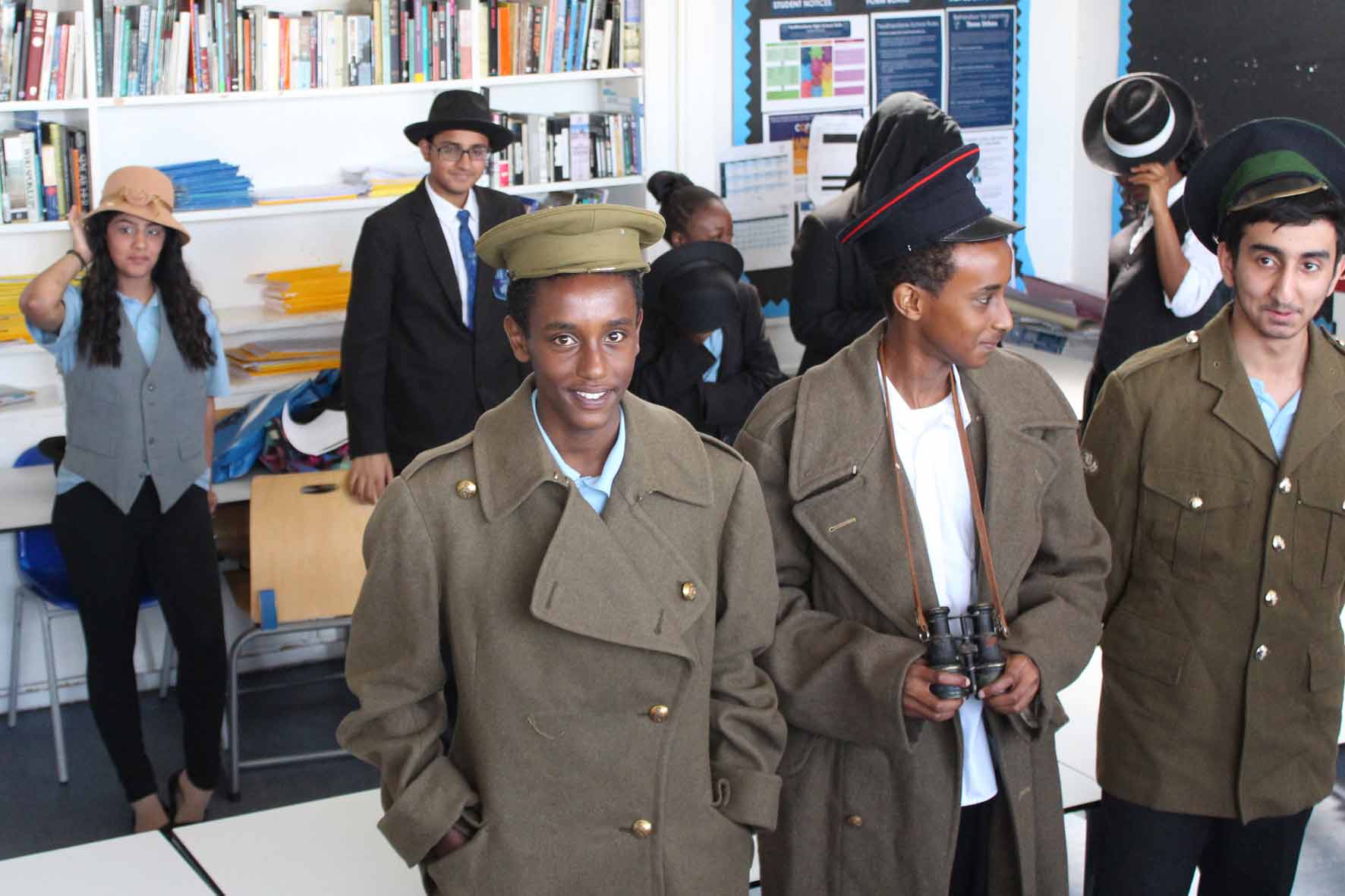History
History is taught at KS3, is offered as an option at GCSE and A Level.
Pupils develop skills of independent thought, analysis and evaluation of arguments and opinions. Evaluating historical evidence allows students to answer historical questions.
Exam Boards:
- A Level History: Pearson Edexcel
- GCSE History: Pearson Edexcel

Statement of Intent
Our history curriculum aims to foster critical thinking, cultural awareness, and historical understanding, equipping students with the skills to navigate the complexities of the past to make sense of the present.
-
Chronological Knowledge: Develop recall of key dates and events to enhance chronological understanding and contextual awareness, including diverse perspectives from various cultures.
-
Second-Order Concepts: Explore and formulate criteria for evaluating second-order concepts (e.g., causation, change, continuity) in historical contexts.
-
Source Analysis: Equip students to critically analyse historical sources, understanding the methodologies historians use to interpret evidence and recognising diverse perspectives in the narratives presented.
-
Historical Interpretations: Foster the ability to assess various historical interpretations, recognising the strengths and weaknesses of differing perspectives, including those from marginalised voices.
-
Critical Thinking: Cultivate a curious mindset, empowering students to apply critical thinking skills to historical enquiry and everyday life.
-
Cultural Capital: Develop well-rounded individuals with diverse perspectives and insights into global events and cultures, promoting an inclusive understanding of history.
-
Literacy Skills: Enhance reading, vocabulary, oracy, and writing skills through engagement with varied historical texts and extended writing tasks.
-
Self-Reflection and Evaluation: Encourage students to reflect on and evaluate their own work, fostering a habit of critical self-assessment and growth in understanding diverse historical narratives.
History Learning Journeys
Learning Journeys
Programme of Study
